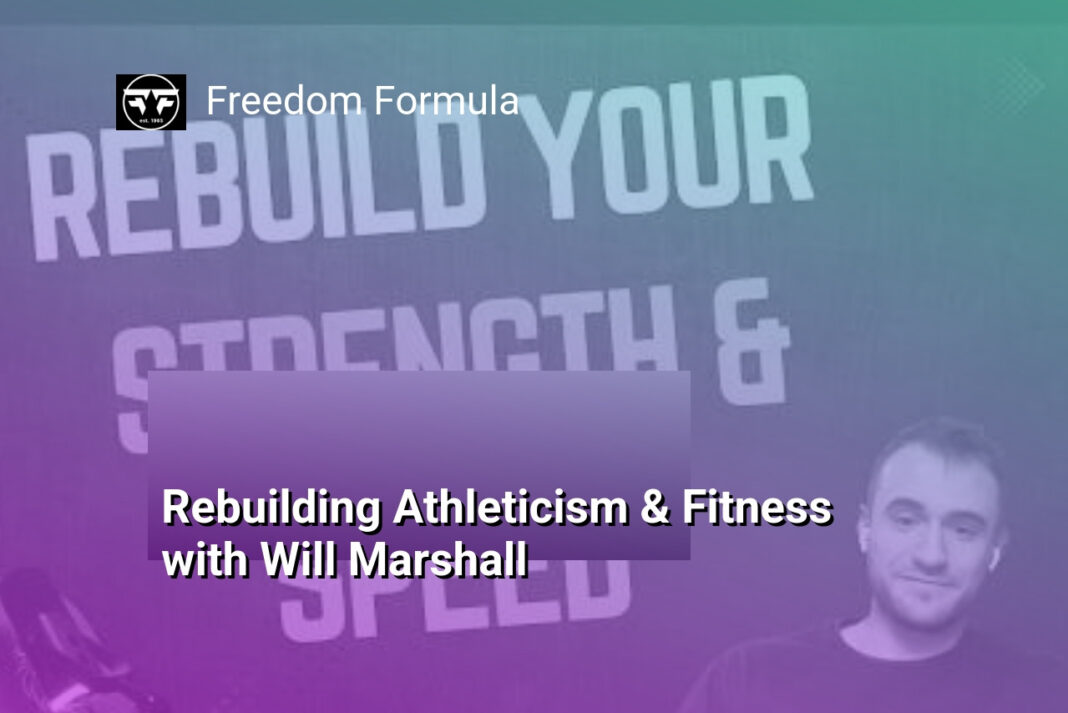The Bottom Line:
- I help ex-athletes rediscover their fitness potential by addressing the psychological barriers that prevent them from maintaining an active lifestyle after their competitive careers.
- My coaching approach focuses on breaking the “All or Nothing” mentality, encouraging clients to embrace consistent, sustainable fitness routines that seamlessly integrate into their daily lives.
- Nutrition education is a critical component of my strategy, teaching clients how to understand macronutrients and develop a balanced diet without experiencing guilt or restriction.
- I guide former athletes through an identity transformation, shifting their mindset from performance-driven athletes to health-conscious individuals who prioritize long-term wellness over immediate perfection.
- By filtering through overwhelming fitness information and providing personalized strategies, I help clients navigate their fitness journey with clarity, motivation, and achievable goals.
Overcoming the All-or-Nothing Athletic Mindset
Breaking the Perfectionist Cycle
The all-or-nothing athletic mindset is a deeply ingrained psychological pattern that plagues many former athletes. This rigid thinking trap convinces individuals that unless they can train at their peak performance level, any effort is essentially worthless. Such a perspective creates a destructive cycle of extreme training followed by complete disengagement, ultimately sabotaging long-term fitness goals and personal well-being.
Redefining Success and Effort
Transitioning from a competitive athletic environment requires a fundamental reimagining of what constitutes meaningful physical activity. Instead of viewing workouts through the lens of championship-level intensity, former athletes must learn to appreciate incremental progress and diverse forms of movement. A 20-minute home workout or a leisurely bike ride can be just as valuable as a high-intensity training session. The key is consistency and enjoyment, not perpetual maximum exertion.
Developing Sustainable Fitness Habits
Overcoming the all-or-nothing mentality involves developing a more nuanced approach to fitness. This means embracing flexibility, understanding that movement exists on a spectrum, and recognizing that any physical activity is beneficial. Former athletes need to shift from a performance-driven mindset to a holistic wellness perspective. This involves setting realistic expectations, celebrating small victories, and understanding that fitness is a lifelong journey with natural ebbs and flows. By releasing the pressure of perfection and adopting a more compassionate approach to personal health, individuals can create sustainable, enjoyable fitness routines that adapt to their changing life circumstances and physical capabilities.
Creating a Personalized Fitness Routine After Sports
Designing a Flexible Training Framework
Transitioning from structured athletic training requires a strategic approach to fitness that respects your body’s history and current capabilities. Former athletes must recognize that their training methodology needs to evolve, moving away from high-intensity competitive models toward sustainable, adaptable fitness strategies. This means understanding your body’s current strengths and limitations while creating a routine that provides both challenge and recovery.
Assessing Personal Fitness Baselines
Before developing a new fitness routine, conduct a comprehensive self-assessment. Evaluate your current physical condition, identifying residual strengths from your athletic background and areas requiring focused rehabilitation. Consider factors like joint health, muscle memory, cardiovascular endurance, and any lingering sports-related injuries. This baseline assessment will help you design a personalized program that leverages your athletic foundation while addressing potential weaknesses.
Implementing Progressive Adaptation Strategies
Successful post-athletic fitness requires a progressive approach that gradually reintroduces structured training. Start with moderate-intensity workouts that incorporate functional movements similar to your previous sport, then progressively increase complexity and challenge. Focus on creating a balanced routine that includes strength training, cardiovascular conditioning, flexibility work, and adequate recovery periods. Embrace variety in your training to maintain engagement and prevent plateaus, utilizing techniques like cross-training, interval training, and periodization to keep your fitness journey dynamic and interesting.
By adopting a holistic, personalized approach, former athletes can successfully transition from competitive sports to a sustainable, fulfilling fitness lifestyle that honors their athletic heritage while supporting long-term health and wellness goals.
Nutrition Strategies for Former Athletes
Metabolic Adaptation and Dietary Precision
Former athletes often experience significant metabolic changes after retiring from competitive sports. The body’s energy requirements dramatically shift when transitioning from high-intensity training to a more sedentary lifestyle. Understanding these metabolic adaptations is crucial for maintaining a healthy body composition and preventing unwanted weight gain. Precise nutritional strategies must account for reduced muscle mass, lower basal metabolic rate, and decreased overall energy expenditure.
Macronutrient Recalibration
Developing a targeted approach to macronutrient intake becomes essential for ex-athletes. Protein consumption remains critical for maintaining muscle mass, but total caloric intake needs careful adjustment. Many athletes struggle with reducing carbohydrate intake while maintaining muscle definition and energy levels. A strategic approach involves gradually reducing carbohydrate consumption while increasing lean protein sources and incorporating healthy fats. This macronutrient balance helps support metabolic health, preserve muscle tissue, and provide sustained energy throughout the day.
Mindful Eating and Nutritional Awareness
Breaking free from the rigid dietary restrictions of competitive sports requires a holistic approach to nutrition. Former athletes must learn to develop a more intuitive relationship with food, moving beyond strict meal plans and calorie counting. This involves understanding nutritional value, practicing portion control, and learning to enjoy food without guilt. Implementing mindful eating techniques can help individuals reconnect with their body’s natural hunger and satiety signals. Nutritional education becomes paramount, focusing on whole foods, balanced meals, and understanding how different nutrients support overall health and fitness goals. The key is creating a sustainable approach that allows for occasional indulgences while maintaining overall nutritional integrity.
Rebuilding Identity and Motivation Beyond Competitive Sports
Rediscovering Personal Purpose Through Fitness
Transitioning from competitive sports to personal fitness requires a profound psychological shift. Many former athletes struggle to redefine their athletic identity beyond structured competition. The key lies in understanding that fitness is no longer about winning medals or meeting team expectations, but about personal growth, health, and individual satisfaction. This transformation demands developing intrinsic motivation that comes from within, rather than external validation or performance metrics.
Breaking the Performance-Driven Mindset
Former athletes often wrestle with an ingrained “all or nothing” mentality that can sabotage sustainable fitness progress. This rigid approach typically leads to burnout or complete disengagement when intense training isn’t possible. Learning to appreciate moderate, consistent exercise and understanding that every movement contributes to overall wellness becomes crucial. Embracing flexibility in workout routines and recognizing that fitness is a lifelong journey, not a short-term achievement, helps athletes reframe their perspective.
Creating a Personalized Fitness Narrative
Developing a new fitness identity requires intentional strategies. This involves setting personalized goals that aren’t tied to competitive achievements but focus on holistic well-being. Former athletes can channel their competitive energy into personal challenges like mastering new movement patterns, improving functional strength, or exploring diverse fitness modalities. By diversifying fitness experiences and removing the pressure of performance, individuals can rediscover joy in physical activity and create a sustainable, meaningful relationship with exercise that adapts to their evolving life stages and personal objectives.
Sustainable Fitness Progress Through Consistent Small Changes
Embracing Incremental Growth and Adaptability
The journey to sustainable fitness is not about radical transformations, but rather consistent, manageable adjustments. Former athletes often struggle with the misconception that progress must be dramatic and immediate. In reality, sustainable fitness is achieved through small, strategic changes that compound over time. This approach allows individuals to build new habits without overwhelming their existing lifestyle, creating a more realistic and achievable path to long-term health and performance.
Breaking Down Complex Goals into Actionable Steps
Transitioning from a structured athletic environment to an independent fitness routine requires a methodical approach. By breaking down larger fitness objectives into smaller, more manageable milestones, individuals can maintain motivation and track meaningful progress. This might involve setting weekly movement goals, gradually increasing workout intensity, or implementing nutrition strategies that align with personal schedules and preferences. The key is creating a system that feels supportive rather than restrictive, allowing for flexibility while maintaining consistent forward momentum.
Psychological Resilience and Adaptive Strategies
Developing psychological resilience is crucial in maintaining fitness progress. Former athletes must learn to detach from their previous competitive identities and embrace a more holistic approach to health. This means understanding that setbacks are normal, perfection is unnecessary, and consistency trumps intensity. By cultivating a growth mindset that values learning and adaptation, individuals can create sustainable fitness habits that integrate seamlessly into their evolving lifestyles. The goal is to develop a relationship with fitness that feels intrinsically motivating, enjoyable, and aligned with personal well-being, rather than driven by external expectations or past athletic achievements.





